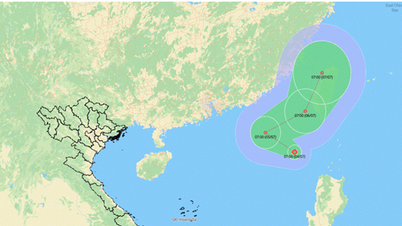Foods high in sugar, salt, and caffeine can disrupt hormones, affecting overall health.
Hormonal imbalance affects the functioning of many organs, increasing the risk of polycystic ovary syndrome, hypothyroidism and hyperthyroidism. Unscientific lifestyle and unbalanced diet are the causes of hormonal disorders.
Below are foods that should be limited in the diet to prevent affecting hormones.
Red meat
Red meat is high in saturated and hydrogenated fats, which are unhealthy if consumed in excess. Red meat consumption increases estrogen production in the body and can cause hormonal imbalances. Good foods include eggs and fatty fish, which are rich in omega-3 fatty acids, which contribute to overall health.
Processed foods
Processed foods like cookies, breads, and other packaged foods are high in preservatives and salt. They can increase inflammation and stress on the adrenal glands, increasing the risk of weight gain and hormonal imbalance.
Coffee
Coffee contains caffeine - a central nervous system stimulant that fights fatigue and increases energy levels. This beverage can change the way fat is stored and support gut health, both of which are beneficial for weight control.
However, people who drink a lot of coffee may experience feelings of anxiety and nervousness. Consuming 1,000 mg or more per day causes stress, restlessness, and difficulty sleeping. Prolonged insomnia leads to hormonal disorders.

Drinking too much coffee can cause hormonal disorders. Photo: Freepik
Caffeine abuse can also increase the body's production of cortisol. Cortisol is a stress hormone. When stressed, increased cortisol stimulates the body to crave foods high in sugar and fat, making it easy to gain weight. Women often eat unhealthy, based on emotions, skipping meals, and snacking when in a bad mood.
Sugar or artificial sweeteners
Artificial sweeteners can disrupt hormones because they affect the bacteria in the gut and increase cravings. People should avoid consuming too much sugary foods such as cakes, donuts, chocolate... Instead, choose healthy alternatives made from natural sugars.
Women who eat a healthy diet can promote natural estrogen production, balancing hormones. Important nutrients include protein, iron, vitamins, carbohydrates and good fats. A diet high in bad fats increases the risk of being overweight, affecting hormones.
Exercise helps improve the body's metabolism and burn excess calories. This is also a way to help women maintain a suitable weight.
Insufficient sleep is linked to imbalances in several hormones, including insulin, cortisol, leptin, ghrelin, and HGH. Sleep deprivation reduces insulin sensitivity and increases cortisol levels over a 24-hour period. To maintain hormonal balance, women need at least eight hours of sleep each night.
Le Nguyen (According to Healthshots )
| Readers ask questions about obstetrics and gynecology here for doctors to answer |
Source link



































































































Comment (0)